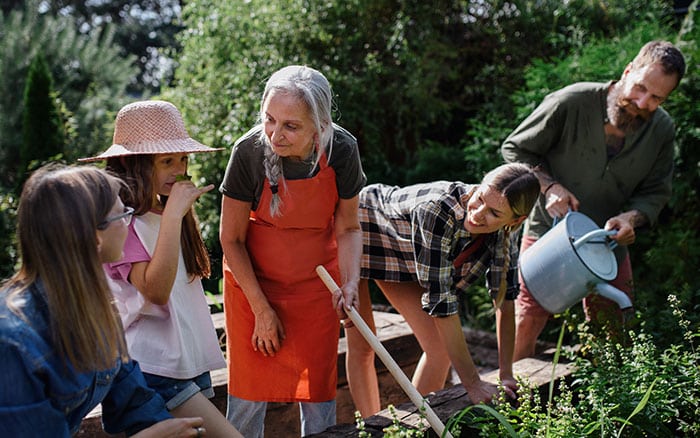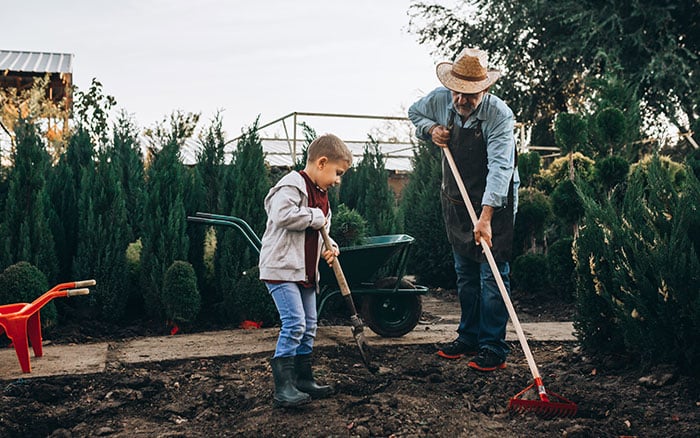Benefits of Gardens for Better Health
What is a Garden for Better Health?
Gardens for Better Health is a competition category added to Cultivation Street in 2019. This category aims to reward community or school gardens that have a positive mental and or physical impact on the health of their local community.
Not only is the impact on the community or school members directly involved in the garden considered, but also the wider community. The services the gardens supply, and the measures they go to to improve the mental and physical well-being of those around them, are so important.
The measures that these go to could be anything from focusing on particular underrepresented groups, such as blind, deaf, or neurodivergent, to holding regular activities to benefit the mental well-being of the community.
What are the benefits to mental wellbeing?
Firstly, gardening can provide an invaluable distraction from life's stresses. Focussing on bringing something to life, nurturing it, and maintaining the garden is a positive alternative to other more negative activities.
Also, by making gardening one of your hobbies could offer a productive and safe activity away from potential antisocial behaviours.

Plus, socialising within these groups can be a great outlet, especially for those who don't have many other socialising options in their lives, which can counter problems such as loneliness and depression. It can be a great activity for those living with anxiety too, and can help to build confidence.
Another way that participating in a community garden can be good for your mental health, is by getting you outside. Particularly for those living in flats, apartments, and very built-up areas, green space outdoors can be a luxury. Providing these outdoor spaces, no matter how small can offer some precious relief from urban spaces.
Finally, gardening is also known to be a great exercise to help people living with conditions such as dementia and Alzheimers. Gardening is often used as a form of therapy for people with these conditions, and it can greatly help their attention span, memory, focus, and general happiness.
What are the benefits to physical wellbeing?
Getting physical exercise can be quite difficult to prioritise in our busy modern lives. But by gardening, you can get two for the price of one. Not only is it a hobby that thousands enjoy every day, but it also keeps you moving and physically fitter. Plus, many gardens, including past winners of Gardens for Better Health, have made efforts to enable accessibility within these gardens. This allows wheelchair users, deaf, blind, neurodivergent and more people to enjoy the physical benefits of gardening too.
One of the less obvious physical benefits is the fresh air you access in a community or school garden. Particularly in urban environments, there are a lot of unnatural fumes and air pollution building up. By accessing a green space like a community garden, you can relieve yourself of some of these pollutants regularly for a couple of hours. This is particularly good for people with conditions such as asthma.
The regular walking and constant moving around required to maintain a community or school garden is a great boost to your stamina. Working on a gardening task for several hours can be meditative, allowing you to completely forget how hard you're working. Over time, you will be able to see how much longer you can work without exhausting yourself. Just be sure to take regular drinks and rest breaks.
Next, is the improvement to physical strength. Several gardening jobs require some considerable elbow grease, such as digging, raking, lifting and more. By regularly carrying out these jobs, you will gradually see an improvement in your physical fitness, and these jobs will slowly become easier.
Several gardening tasks will help your physical flexibility. When bending to sow, plant, and prune, you will improve your physical flexibility. Some community gardening clubs also include exercise classes such as yoga as part of their community efforts, which will also benefit your flexibility.
Finally, fine motor skills can be greatly benefited by some of the smaller and more intimate gardening tasks. This is great for children, or people who have experienced brain injuries, physical conditions such as Parkinson's or Strokes, and more. Gardening can do the world of good to help hone and improve these skills immensely


